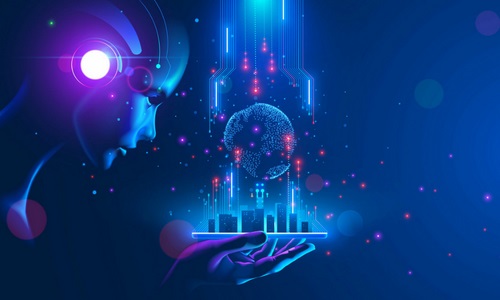From Sci-Fi to Reality: The Rise of AI Assistants
Just a decade ago, the idea of having a conversation with a machine felt like something straight out of a science fiction novel. Today, AI-powered assistants are not only commonplace but are also becoming indispensable in our daily routines. Whether it’s setting reminders, answering complex questions, or even helping us learn new skills, these digital helpers are transforming the way we interact with technology.
The evolution of AI assistants has been nothing short of remarkable. Early versions were limited to simple voice commands and basic tasks, but modern iterations—like the one you’re interacting with right now—can understand context, learn from interactions, and even anticipate needs. This shift is largely thanks to advancements in natural language processing (NLP) and machine learning, which allow these systems to become more intuitive and responsive over time.
One of the most exciting aspects of this technology is its accessibility. You don’t need a high-end device or specialized knowledge to benefit from an AI assistant. From smartphones to smart speakers, these tools are integrated into devices that many of us already use every day. And as they continue to improve, their potential applications are expanding. Imagine an assistant that doesn’t just answer questions but also helps you brainstorm ideas, manage projects, or even act as a creative partner.
Beyond Convenience: AI in Professional Settings
AI assistants are not just for personal use; they’re making waves in professional environments, too. Businesses are leveraging AI to streamline operations, enhance customer service, and even drive innovation. For example, AI-powered chatbots are now handling customer inquiries around the clock, freeing up human agents to focus on more complex tasks. In creative fields, tools like AI-generated content and design assistants are helping professionals work faster and more efficiently.
But what does this mean for the future of work? Some fear that AI might replace human jobs, but the reality is more nuanced. AI is better seen as a collaborator rather than a competitor. It can take over repetitive tasks, analyze vast amounts of data in seconds, and provide insights that might take humans much longer to uncover. This allows people to focus on what they do best: thinking critically, solving problems, and innovating.
For instance, consider the impact of AI on branding and marketing. Companies can now use AI to generate ideas for a logo, analyze consumer trends, and personalize content at scale. This doesn’t replace the creativity of human designers and marketers—it enhances it, giving them more time to focus on strategy and storytelling.
The Ethical Side of AI: Challenges and Responsibilities
With great power comes great responsibility, and AI is no exception. As these systems become more integrated into our lives, questions about privacy, bias, and accountability are coming to the forefront. How do we ensure that AI respects user privacy? How can we prevent algorithms from perpetuating biases? These are critical questions that developers, policymakers, and users must address together.
Transparency is key. Users should understand how their data is being used and have control over it. Additionally, the tech community must prioritize ethical AI development, ensuring that these tools are designed to be fair, inclusive, and beneficial for all.
What’s Next? The Road Ahead for AI Assistants
The future of AI assistants is bright, but it’s also full of challenges. We can expect to see even more personalized and context-aware interactions, with AI systems that understand not just what we say, but how we feel. Emotion recognition, advanced predictive analytics, and seamless integration with other technologies—like augmented reality and the Internet of Things—are just a few areas to watch.
As AI continues to evolve, so too will our relationship with technology. The goal isn’t to create machines that think like humans, but to build tools that empower us to live and work better. Whether it’s helping students learn, assisting doctors in diagnosing illnesses, or simply making our daily lives a little easier, AI assistants are here to stay.
